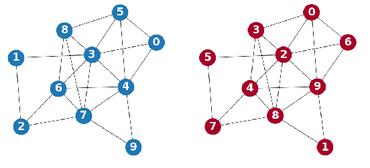Search Results for author: Qimai Li
Found 16 papers, 11 papers with code
Using Human Feedback to Fine-tune Diffusion Models without Any Reward Model
1 code implementation • 22 Nov 2023 • Kai Yang, Jian Tao, Jiafei Lyu, Chunjiang Ge, Jiaxin Chen, Qimai Li, Weihan Shen, Xiaolong Zhu, Xiu Li
The direct preference optimization (DPO) method, effective in fine-tuning large language models, eliminates the necessity for a reward model.
Boosting Decision-Based Black-Box Adversarial Attack with Gradient Priors
no code implementations • 29 Oct 2023 • Han Liu, Xingshuo Huang, Xiaotong Zhang, Qimai Li, Fenglong Ma, Wei Wang, Hongyang Chen, Hong Yu, Xianchao Zhang
Decision-based methods have shown to be effective in black-box adversarial attacks, as they can obtain satisfactory performance and only require to access the final model prediction.
Recon: Reducing Conflicting Gradients from the Root for Multi-Task Learning
1 code implementation • 22 Feb 2023 • Guangyuan Shi, Qimai Li, Wenlong Zhang, Jiaxin Chen, Xiao-Ming Wu
Our experiments show that such a simple approach can greatly reduce the occurrence of conflicting gradients in the remaining shared layers and achieve better performance, with only a slight increase in model parameters in many cases.
Simple yet Effective Gradient-Free Graph Convolutional Networks
no code implementations • 1 Feb 2023 • Yulin Zhu, Xing Ai, Qimai Li, Xiao-Ming Wu, Kai Zhou
Linearized Graph Neural Networks (GNNs) have attracted great attention in recent years for graph representation learning.
Multi-Agent Path Finding via Tree LSTM
1 code implementation • 24 Oct 2022 • Yuhao Jiang, Kunjie Zhang, Qimai Li, Jiaxin Chen, Xiaolong Zhu
In recent years, Multi-Agent Path Finding (MAPF) has attracted attention from the fields of both Operations Research (OR) and Reinforcement Learning (RL).
Modeling User Behavior with Graph Convolution for Personalized Product Search
1 code implementation • 12 Feb 2022 • Fan Lu, Qimai Li, Bo Liu, Xiao-Ming Wu, Xiaotong Zhang, Fuyu Lv, Guli Lin, Sen Li, Taiwei Jin, Keping Yang
Our approach can be seamlessly integrated with existing latent space based methods and be potentially applied in any product retrieval method that uses purchase history to model user preferences.
A Closer Look at the Training Strategy for Modern Meta-Learning
1 code implementation • NeurIPS 2020 • Jiaxin Chen, Xiao-Ming Wu, Yanke Li, Qimai Li, Li-Ming Zhan, Fu-Lai Chung
The support/query (S/Q) episodic training strategy has been widely used in modern meta-learning algorithms and is believed to improve their generalization ability to test environments.
Unknown Intent Detection Using Gaussian Mixture Model with an Application to Zero-shot Intent Classification
1 code implementation • ACL 2020 • Guangfeng Yan, Lu Fan, Qimai Li, Han Liu, Xiaotong Zhang, Xiao-Ming Wu, Albert Y. S. Lam
User intent classification plays a vital role in dialogue systems.
Reconstructing Capsule Networks for Zero-shot Intent Classification
1 code implementation • IJCNLP 2019 • Han Liu, Xiaotong Zhang, Lu Fan, Xu Fu, i, Qimai Li, Xiao-Ming Wu, Albert Y. S. Lam
With the burgeoning of conversational AI, existing systems are not capable of handling numerous fast-emerging intents, which motivates zero-shot intent classification.
Clustering Uncertain Data via Representative Possible Worlds with Consistency Learning
no code implementations • 27 Sep 2019 • Han Liu, Xianchao Zhang, Xiaotong Zhang, Qimai Li, Xiao-Ming Wu
However, there are two issues in existing possible world based algorithms: (1) They rely on all the possible worlds and treat them equally, but some marginal possible worlds may cause negative effects.
Dimensionwise Separable 2-D Graph Convolution for Unsupervised and Semi-Supervised Learning on Graphs
1 code implementation • 26 Sep 2019 • Qimai Li, Xiaotong Zhang, Han Liu, Quanyu Dai, Xiao-Ming Wu
Graph convolutional neural networks (GCN) have been the model of choice for graph representation learning, which is mainly due to the effective design of graph convolution that computes the representation of a node by aggregating those of its neighbors.
Attributed Graph Learning with 2-D Graph Convolution
no code implementations • 25 Sep 2019 • Qimai Li, Xiaotong Zhang, Han Liu, Xiao-Ming Wu
Graph convolutional neural networks have demonstrated promising performance in attributed graph learning, thanks to the use of graph convolution that effectively combines graph structures and node features for learning node representations.
Attributed Graph Clustering via Adaptive Graph Convolution
1 code implementation • 4 Jun 2019 • Xiaotong Zhang, Han Liu, Qimai Li, Xiao-Ming Wu
Attributed graph clustering is challenging as it requires joint modelling of graph structures and node attributes.
 Ranked #3 on
Graph Clustering
on Cora
Ranked #3 on
Graph Clustering
on Cora
Label Efficient Semi-Supervised Learning via Graph Filtering
1 code implementation • CVPR 2019 • Qimai Li, Xiao-Ming Wu, Han Liu, Xiaotong Zhang, Zhichao Guan
However, existing graph-based methods either are limited in their ability to jointly model graph structures and data features, such as the classical label propagation methods, or require a considerable amount of labeled data for training and validation due to high model complexity, such as the recent neural-network-based methods.
Large Margin Few-Shot Learning
no code implementations • 8 Jul 2018 • Yong Wang, Xiao-Ming Wu, Qimai Li, Jiatao Gu, Wangmeng Xiang, Lei Zhang, Victor O. K. Li
The key issue of few-shot learning is learning to generalize.
Deeper Insights into Graph Convolutional Networks for Semi-Supervised Learning
1 code implementation • 22 Jan 2018 • Qimai Li, Zhichao Han, Xiao-Ming Wu
Many interesting problems in machine learning are being revisited with new deep learning tools.
 Ranked #3 on
Node Classification
on Facebook
Ranked #3 on
Node Classification
on Facebook








